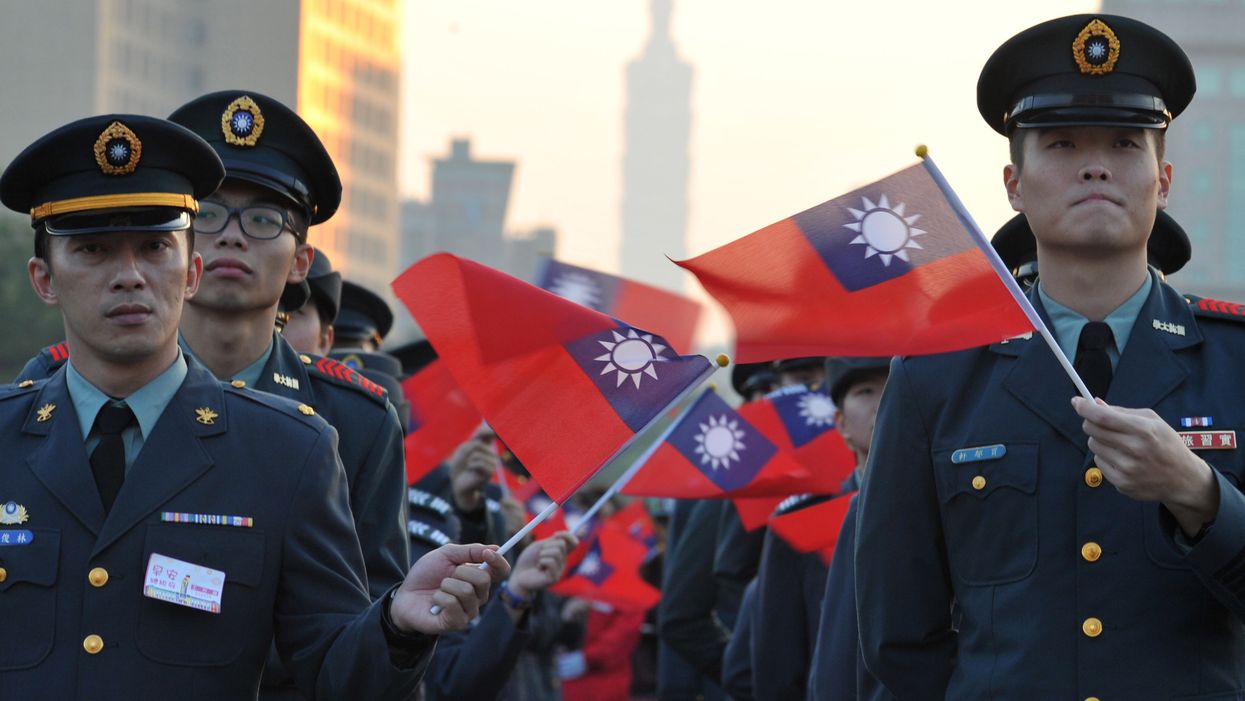
Mandy Cheng/AFP/Getty Images

The US has never formally acknowledged Taiwan's independence, in deference to China
The U.S. has approved a multibillion-dollar arms deal with Taiwan, despite China's insistence that the rest of the world should ignore the contested Asian country.
After World War II, China went through a civil war. This ended with the communist forces of Mao Zedong forcing the nationalist forces of Chiang Kai-shek to retreat to Taiwan in 1949. Chiang and his supporters took over the island and set up a dictatorship.
Since then, Taiwan has claimed its independence from China, but the Chinese government has refused to recognize this. China has pressured other nations to cut off economic and diplomatic ties with Taiwan, in order to pressure the Taiwanese government into rejoining China.
Although the U.S. initially acknowledged Taiwan, the two countries cut diplomatic ties in 1979 as the U.S. tried to strengthen its relationship with China.
In December 2016, then-President elect Donald Trump created a stir when he called Taiwanese President Tsai Ying-wen.
In January, Chinese President Xi Jinping tried to use threats to force Taiwan to agree to reunification, calling Taiwanese independence "a dead end."
On Monday, the U.S. State Department approved the sale of $2.2 billion worth of military equipment to Taiwan, including Stinger missiles and M1A2T Abrams tanks.
While the U.S. doesn't have a formal diplomatic relationship with Taiwan, this is not the first time that it has sold it military equipment. According to CNN, the U.S. has publicly agreed to sell more than $15 billion in military equipment to Taiwan since 2010.
The Chinese Defense Ministry said that the Chinese government was "firmly opposed to US arms sales to Taiwan and US military contact with Taiwan."
However, the Pentagon's Defense Security Cooperation Agency insisted that the arms deal would not "alter the basic military balance in the region."